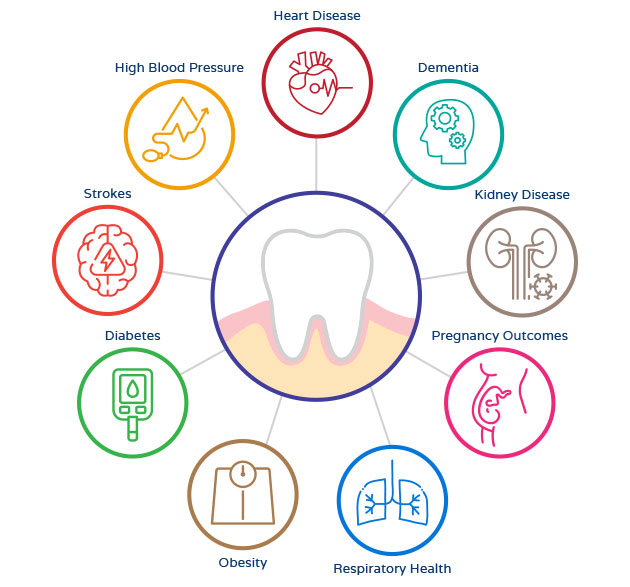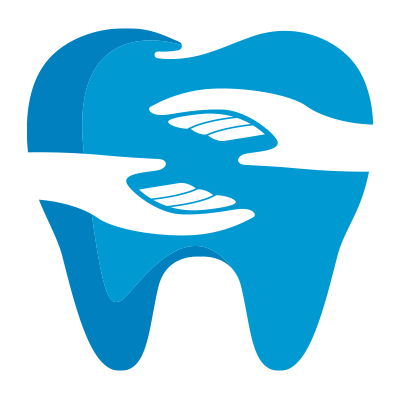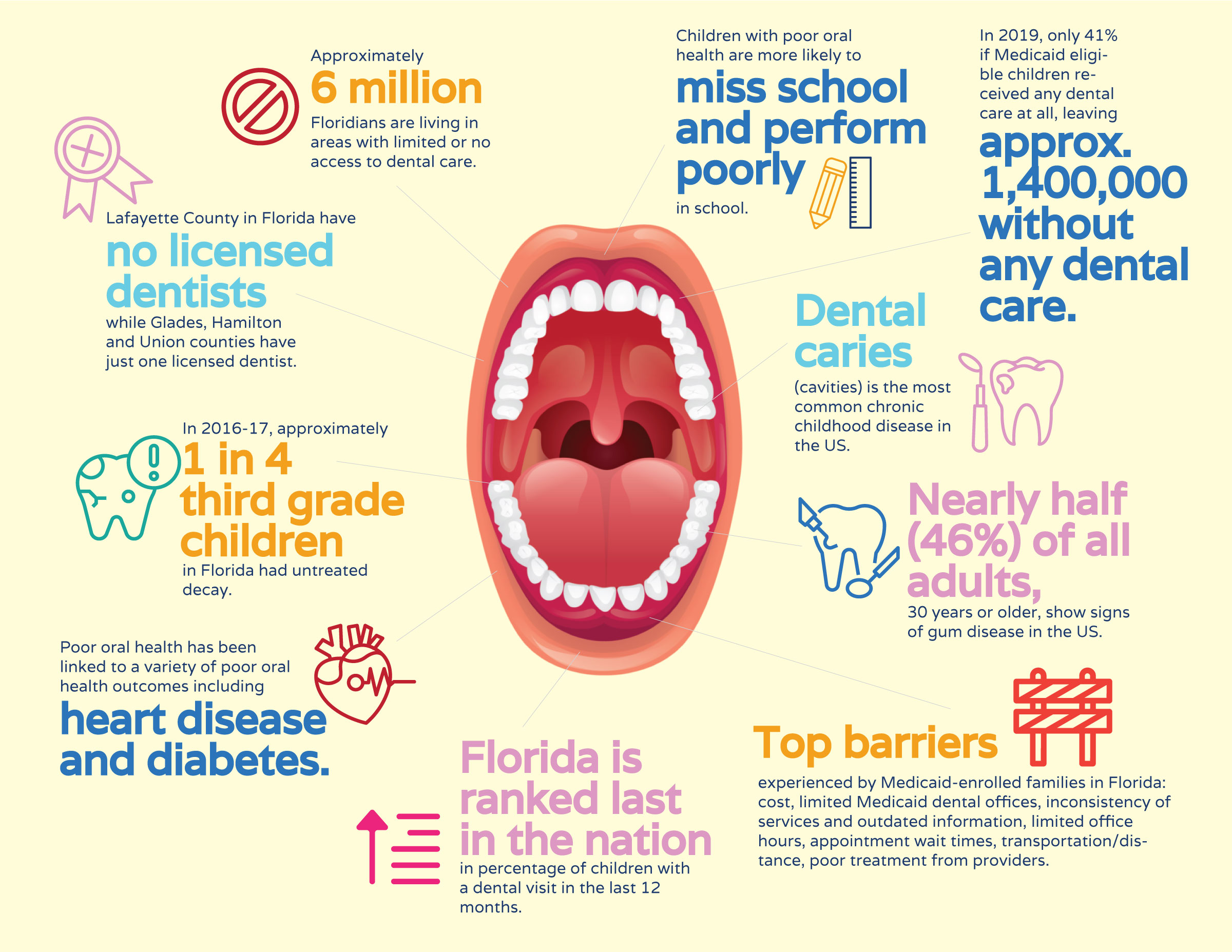Oral Health Facts and Tips
Hello Parents and Caregivers!
This page provides some guidance and resources as you and your families get started on your oral health journeys.
Below you’ll find information on:
- What is oral health and why it matters
- How oral health can impact your overall health
- Preventative dentistry and dental homes
- How to prepare for your child’s first visit
- Dental care and hygiene through the early childhood years
What is oral health and why is it important?
How does Oral Health impact overall health?

What is preventive dentistry?
Why is preventive dentistry important?
What is a dental home and why is it important?
- Patients feel more comfortable and less anxious about dental care
- Regular visits will help prevent cavities and other oral problems
- The dental team will guide you on how to take care of your teeth and gums at home By visiting regularly, the dentist can treat problems early, making easier and less expensive
- They can take care of your urgent needs, but also make referrals to specialists.
Why Go to The Dentist?
The sooner children begin getting regular dental checkups, the healthier their mouths will stay throughout their lives. Early checkups help prevent cavities, which can lead to pain, trouble concentrating, and other medical issues. Kids with healthy teeth chew food easily, learn to speak clearly, and smile with confidence.

When should your child start seeing a dentist?
How often should your child see a dentist?
Scheduling Your First Oral Examination

This is the most important visit, and it should occur as soon as the first tooth appears, and it should not be later than 1 year old (12 months). Your child should be seen by a dentist within this timeframe to avoid any risks for developing oral health diseases.
Preparing Your Child for the Visit
There are some important steps to take before your visit, so it runs smoothly.
- Start early.
- Be positive and avoid details.
- Find an awesome practice for your kid and take a tour prior to your visit.
- Tell your child about his/her appointment.
- Watch videos, read books, print fun activities about going to the dentist.
- Let your dentist explain the details and what to expect from the dental visit.
- Use positive reinforcement.

Family Preparation and Recommendations
- Parents should be prepared for oral health visits. Health professionals can provide parents with a list of topics to discuss during the visit. Topics may include the following:
- Changes in the teeth and the mouth
- Oral hygiene practices (frequency, problems)
- Use of fluoridated water for drinking, cooking, or formula preparation
- Fluoride use (fluoridated toothpaste, fluoridated mouth rinse, fluoride supplements)
- Use of bottle or cup by child
- Feeding and eating practices
- Non-nutritive sucking (pacifier, thumb, finger)
- Illnesses or infections
Medications - Injuries to the teeth or mouth
- Parents’ tobacco use
- It is important to become familiar with the normal appearance of the child’s gums and teeth. This will help you identify if and when some issue occurs (see Tooth Eruption Chart).
- Check your child’s gums and teeth about once a month.
General Tips
- Always use a soft-bristle toothbrush, preferably one with a small head.
- Use fluoride toothpaste and mouthwash to give your teeth extra benefits.
- Don’t rinse with water after brushing, the leftover toothpaste provides extra protection.
- Don’t forget to brush the tongue.
- Allow for the toothbrush to dry, don’t store it where it can stay moist.
- Change toothbrushes every 3-4 months or when the bristles are damaged.
- Brushing before bed is the most important.
Oral Hygiene throughout the years
Before the first tooth…
Clean your baby’s gums and tongue with a soft-wet cloth to remove leftover milk or foods. There are many devices designed to help you introduce brushing at a young age: finger toothbrushes, training toothbrushes made out of silicone, teethers with bristles or irregular areas, they all not only stimulate the gums but also help get baby used to a future tooth brushing routine.

From the first tooth to age 3…

Brush your baby’s teeth with a small smear of fluoridated toothpaste twice a day (after breakfast and before bed). Use just a small smear of fluoridated toothpaste. Use infant toothbrushes and don’t forget the tongue and areas with no teeth as well.
Start introducing flossing early, especially if there are teeth that touch each other. Small flossers with shapes, colors, and flavors, may help kids be more receptive.
Children 3 to 6 years…
Brush your child’s teeth with a pea-sized amount of fluoridated toothpaste twice a day (after breakfast and before bed). Kids should spit out the toothpaste after brushing but shouldn’t rinse with water. The small amount of fluoridated toothpaste that remains in the mouth helps prevent tooth decay. Make sure to reach all the way to the back where the first permanent tooth may start to come out. Because brushing requires good fine motor control, young children cannot clean their teeth effectively without parental help. Flossing becomes even more important at this stage.

Ages 7 and up...

Reinforce the routine of brushing twice a day and flossing once a day. Make sure you supervise your child’s brushing at least once a day (preferably the nighttime brushing), until they acquire fine motor skills (e.g., the ability to tie their shoelaces), and they are effective on their own.
Children with special needs
Although all the tips mentioned above still apply, some kids with special needs may need certain modifications for their oral health at home. Consider planning a little more time for brushing, using different positions, and even finding adaptive toothbrushes and devices to assist in cleaning their teeth.

Do you think we should add a resource or information that is not included here?
Please use our feedback form to submit your suggestions.

